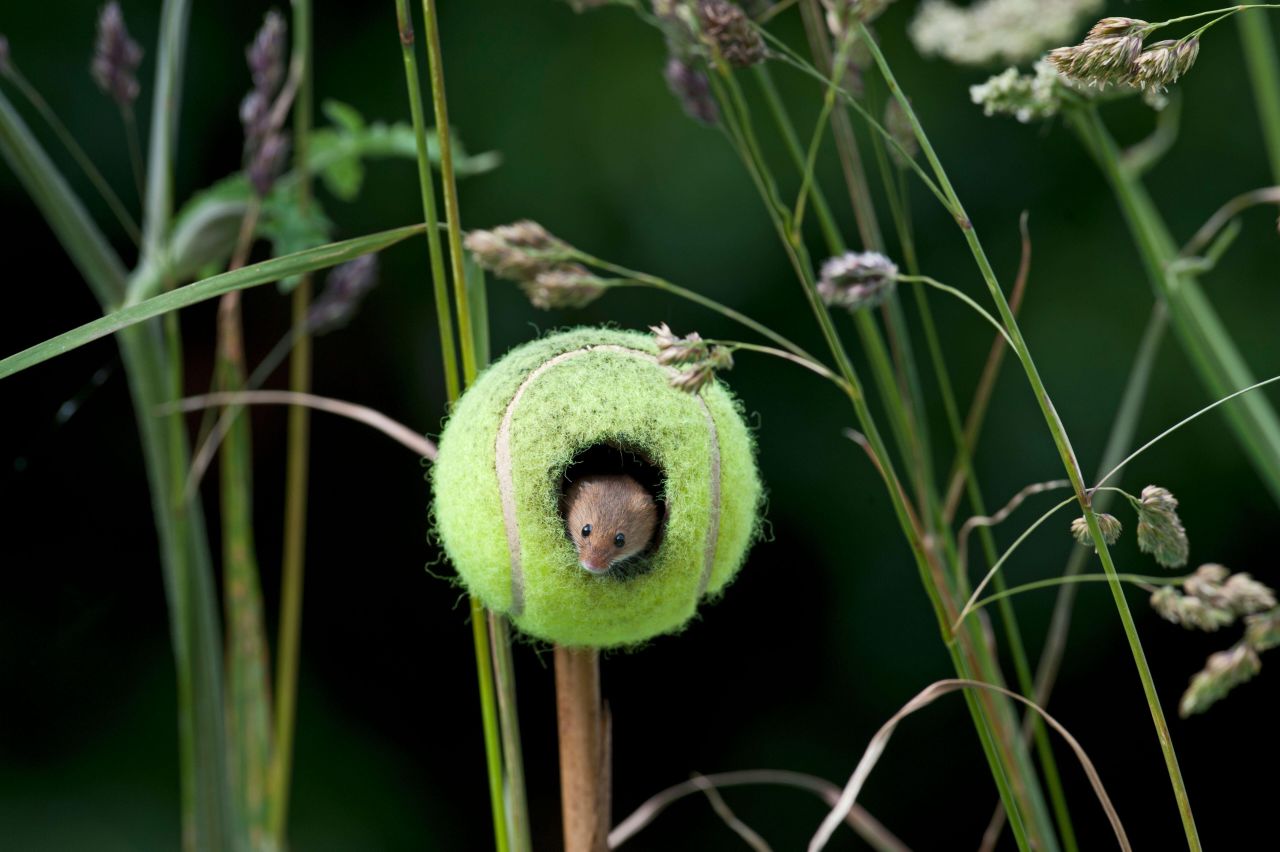Top Stories
Wimbledon Transforms 55,000 Used Tennis Balls into Wildlife Homes

Wimbledon, the iconic tennis tournament, has found an innovative way to repurpose the approximately 55,000 tennis balls used during this year’s championships. In a partnership with The Wildlife Trusts, these balls are being transformed into homes for harvest mice, contributing positively to local wildlife conservation efforts.
As the tournament concluded in early July 2023, the environmental impact of such a large event has raised questions about sustainability in sports. Wimbledon’s initiative reflects a growing awareness of the need for eco-friendly practices within major sporting events.
From Courts to Conservation
The collaboration with The Wildlife Trusts is part of a broader movement to minimize waste and promote environmental stewardship. The organization has developed a method to upcycle the used balls, allowing them to serve as protective habitats for harvest mice, a species often at risk due to habitat loss.
This initiative not only supports wildlife but also highlights a new path for other sporting events to follow. As sustainability becomes a priority across various industries, Wimbledon’s efforts stand out as a model for integrating environmental responsibility into the fabric of sports culture.
In a time when climate change is a pressing concern, such measures resonate with a public increasingly aware of the ecological footprint of their activities. Wimbledon’s project has sparked discussions on how sports can play a role in fostering biodiversity and supporting local ecosystems.
Weathering the Heat Waves
While Wimbledon made headlines for its green initiatives, the weather has also been a hot topic in the UK. Recent heatwaves have seen temperatures soar, with London and Manchester reaching highs of 31°C. Experts from the Met Office have noted that the UK could potentially face temperatures of 45°C in the future, prompting discussions about how to adapt to this changing climate.
The rising temperatures have encouraged a shift in lifestyle for many, with increasing interest in air conditioning and cooling solutions. The market for fans, including both portable and ceiling models, is projected to reach £422 million by 2030, reflecting a significant change in consumer behavior.
This adaptation to warmer weather also brings opportunities for agriculture, as certain crops thrive in higher temperatures. The shift towards growing linseed, for instance, offers farmers a viable alternative to rapeseed, which faces challenges due to climate conditions. The beautiful blue fields of blooming linseed not only enhance the landscape but also provide a rich source of Omega-3 fatty acids.
As the UK grapples with its evolving climate, the balance between embracing the heat and mitigating its impacts will be crucial. Wimbledon’s initiative to recycle tennis balls serves as a reminder that even in the face of challenges, there are opportunities for positive change and community engagement.
In conclusion, as Wimbledon wraps up its tennis season, it leaves behind a legacy of environmental consciousness that resonates far beyond the courts, inviting both sports enthusiasts and the general public to consider their role in preserving the planet.
-

 Health3 months ago
Health3 months agoNeurologist Warns Excessive Use of Supplements Can Harm Brain
-

 Health4 months ago
Health4 months agoFiona Phillips’ Husband Shares Heartfelt Update on Her Alzheimer’s Journey
-

 Science2 months ago
Science2 months agoBrian Cox Addresses Claims of Alien Probe in 3I/ATLAS Discovery
-

 Science2 months ago
Science2 months agoNASA Investigates Unusual Comet 3I/ATLAS; New Findings Emerge
-

 Science2 months ago
Science2 months agoScientists Examine 3I/ATLAS: Alien Artifact or Cosmic Oddity?
-

 Entertainment2 months ago
Entertainment2 months agoLewis Cope Addresses Accusations of Dance Training Advantage
-

 Entertainment5 months ago
Entertainment5 months agoKerry Katona Discusses Future Baby Plans and Brian McFadden’s Wedding
-

 Science2 months ago
Science2 months agoNASA Investigates Speedy Object 3I/ATLAS, Sparking Speculation
-

 Entertainment5 months ago
Entertainment5 months agoEmmerdale Faces Tension as Dylan and April’s Lives Hang in the Balance
-

 World3 months ago
World3 months agoCole Palmer’s Cryptic Message to Kobbie Mainoo Following Loan Talks
-

 World4 weeks ago
World4 weeks agoBailey and Rebecca Announce Heartbreaking Split After MAFS Reunion
-

 Science2 months ago
Science2 months agoNASA Scientists Explore Origins of 3I/ATLAS, a Fast-Moving Visitor









